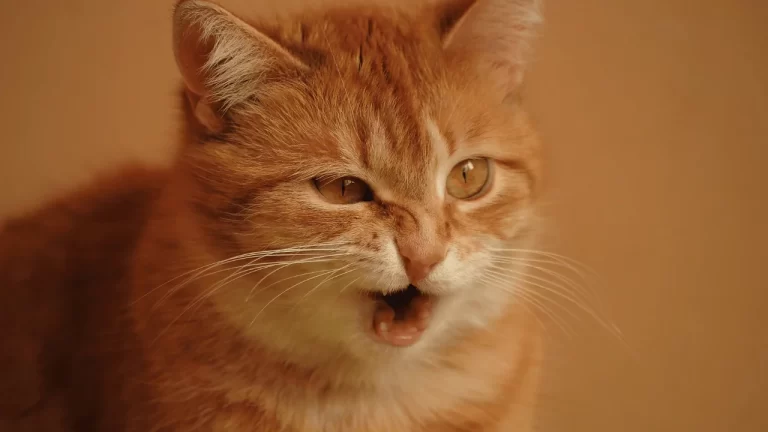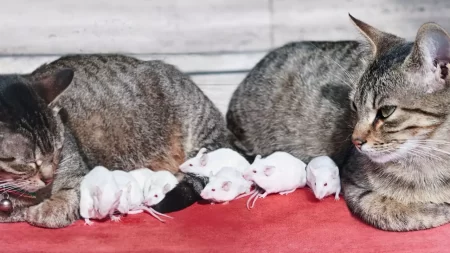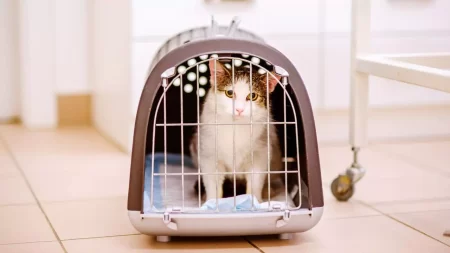Sneezing is a common occurrence for cats, just like humans. As a cat owner, I’m used to the occasional cat sneeze here and there. However, when my cat Mittens started having sneezing fits multiple times a day, I knew something was off. Even though she seemed fine otherwise, the constant sneezing worried me. Through some research and a vet visit, I got to the bottom of Mittens’ mysterious sneezes. Here’s my experience dealing with a sneezy but otherwise healthy cat.
Common Causes of Sneezing in Cats
Sneezing can be caused by a variety of conditions in cats. Some are simple, while others may require veterinary attention. Here are some of the most common reasons behind cat sneezing:
Viral Infections
Viruses like feline herpesvirus, calicivirus, and feline viral rhinotracheitis can all lead to upper respiratory infections in cats. The infections cause inflammation in the nasal passages, sinuses, and throat which leads to sneezing and nasal discharge. The good news is most cats recover fully with supportive care and medication.
Allergies
Allergies to things like pollen, dust mites, molds, and chemicals can trigger sneezing in cats. Just like people, cats can develop seasonal allergies or be allergic to certain substances in their environment. Medication and removing allergens can provide relief.
Fungal Infections
Fungal organisms like Cryptococcus or Aspergillus can colonize the nasal passages of cats leading to sneezing and discharge. Antifungal medication is needed to clear the infection.
Foreign Bodies
Grass, dirt, or other foreign material getting lodged in the nose can cause irritation and sneezing. Carefully removing the object with tweezers or flushing the nasal passage often resolves it.
Respiratory Infections
Bacterial or viral infections of the lower respiratory tract like feline bronchitis can also lead to sneezing. Antibiotics are used for bacterial infections while viral ones clear up on their own.
Nasal Cancer
Tumors in the nasal cavity or sinuses are an uncommon cause of chronic sneezing and nasal discharge in cats. Imaging tests like CT scans or MRIs are needed to diagnose nasal cancer.
Feline Rhinitis
Rhinitis refers to inflammation in the nasal cavity lining. It can be caused by allergies, infection, or irritants. Medication can help control sneezing and discharge.
Sinus Infections
Bacterial or fungal sinus infections can also cause sneezing in cats. Sinus infections are treated with prescription antimicrobials.
Undiagnosed Conditions
Sometimes chronic sneezing may be a symptom of an undiagnosed medical condition like dental disease, polyps, or autoimmune disorders. A full veterinary workup is needed.
Feline Asthma
Asthma is another potential cause of chronic sneezing and coughing in cats. Corticosteroids and bronchodilators are used to manage asthmatic cats.
As you can see, there are many possible reasons for cat sneezing. Some are simple to treat while others require more extensive diagnosis and care. The key is noticing when sneezing is occasional versus frequent or chronic.
When to Take Your Cat to the Vet?
For the occasional achoos, home monitoring is fine. But if your cat has frequent sneezing spells or the sneezing persists longer than a week, it warrants a trip to the vet.
Some signs that indicate sneezing needs veterinary attention include:
- Sneezing more than 2-3 times a day
- Discharge from the nose or eyes
- Noisy breathing or coughing
- Loss of appetite
- Lethargy or hiding more than usual
- Ulcers in the mouth
- Fever
- Weight loss
A vet exam can check for fever, nasal discharge, dental issues, lung congestion, and swelling that signal an underlying problem. Based on the clinical signs, the vet may recommend blood tests, x-rays, CT scan, or other diagnostics.
Treatment will depend on the cause but may include antibiotics, antivirals, antifungals, corticosteroids, or medications to open the airways. Home care like humidifying the air, keeping the cat’s environment clean, and applying nasal drops can also help.
With prompt diagnosis and proper treatment, most cats recover fully from sneezing, even if the cause is unknown. The key is not waiting too long before getting the vet involved.
Tips to Stop Your Cat’s Sneezing
While you’re working on getting a vet appointment, try these home remedies to minimize your cat’s sneezing episodes:
Use a Humidifier
Dry air can irritate nasal passages. Run a humidifier to add moisture back and provide relief.
Remove Allergens
If allergies are suspected, use high efficiency filters to trap dust, dander and pollen. Wash bedding weekly in hot water too.
Change the Litter
The dust in traditional clay litters can trigger sneezing. Try switching to a dust-free, clumping litter instead.
Use an Air Filter
High efficiency particulate air (HEPA) filters can remove allergens and irritants from the home’s air.
Keep Things Clean
Frequent vacuuming and dusting can minimize sneeze-inducing particles in the environment.
While these tips may help reduce sneezing, they don’t treat the underlying cause. Seeking veterinary care is still important to pinpoint and resolve the origin of the problem.
Conclusion
Occasional sneezing is normal for cats. But when it becomes excessive or chronic, there may be an underlying health issue involved. While viruses and allergies are common culprits, many conditions can cause cat sneezing. Don’t hesitate to call your vet if the sneezing persists or is accompanied by other symptoms. With proper diagnosis and treatment, most cats with sneezing fully recover and return to their happy, non-sneezy selves! My sneezy Mittens was back to her sweet, snuggly self thanks to our vet’s care and some simple management changes at home.







